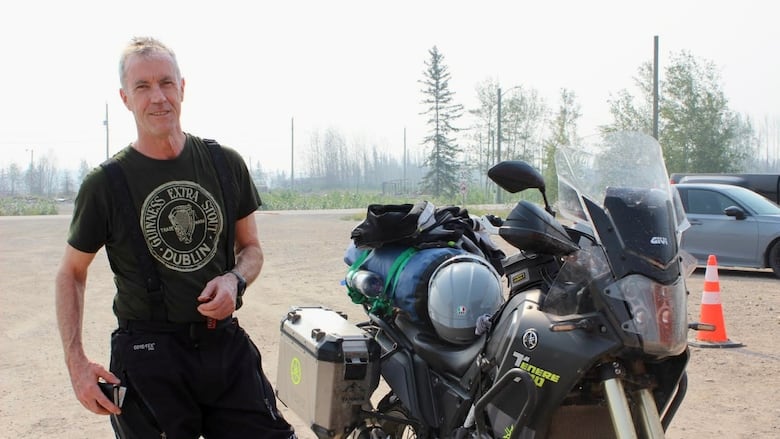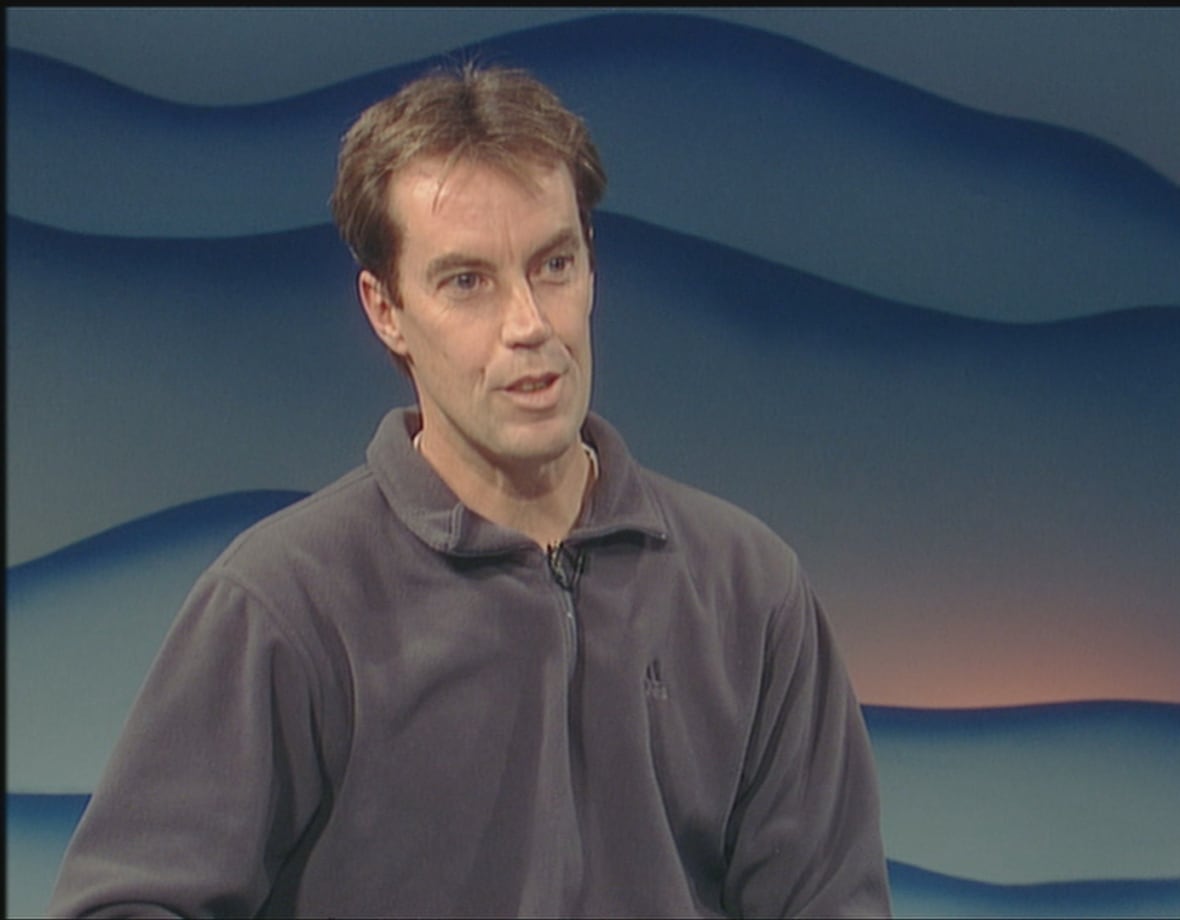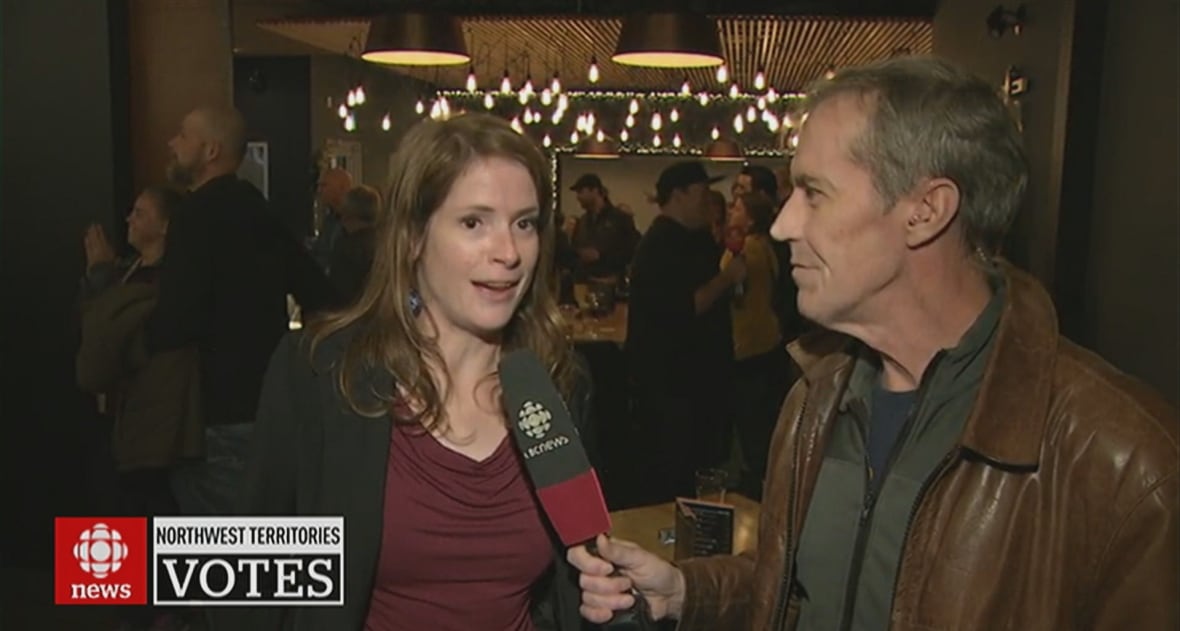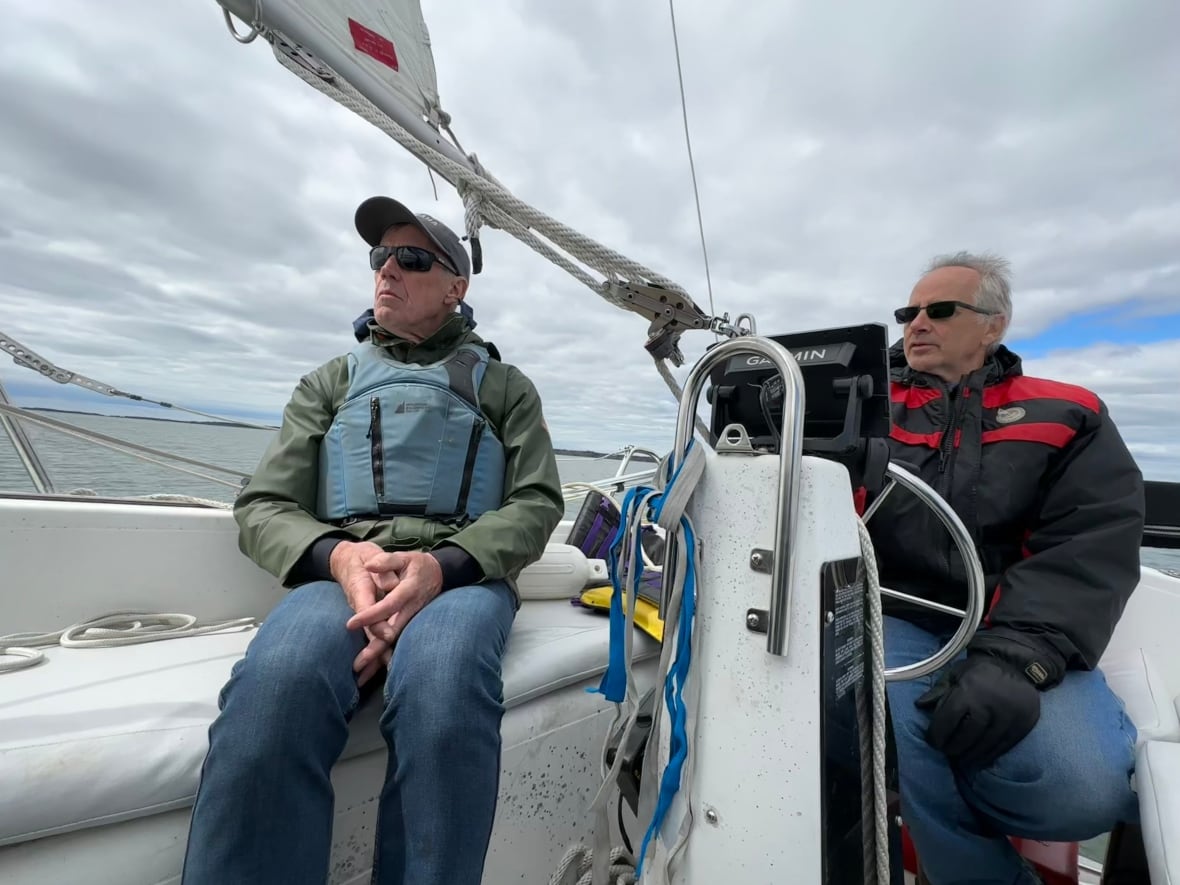After nearly 30 years of reporting on the N.W.T., CBC's Richard Gleeson retires
Gleeson didn’t want a fluffy story to mark his career; CBC News did its best to not give him one

Richard Gleeson, a reporter who once dumpster-dived for a story, is retiring from journalism after decades of work in the N.W.T.
Gleeson moved to Yellowknife in 1996 as a reporter for Northern News Services Ltd. (NNSL) and started at CBC North in 2002. He covered some of the biggest stories of his day, from the trial following the shooting death of RCMP Const. Christopher Worden, to Giant Mine, to territorial elections.
He became the senior assignment producer a few years ago, where he mentored and guided young journalists.
Gleeson, who is still the boss of this author for another several hours, didn't want a story listing his accomplishments published.

Instead, CBC News reached out to his various adversaries over the years to hear what they thought of his career. They either ignored the request, were too burned by him to speak of their relationship or wished him the best.
So, here's the story Gleeson probably won't like.
His work
Those newer to Yellowknife may not be as familiar with Gleeson's work — his role as assignment producer took precedence over writing articles.
Despite that, he's still written major accountability stories in recent years, including one on senior bureaucrats who travelled out of the territory during the COVID-19 pandemic — despite the premier urging the public not to travel; a story on a hotline to help people quit smoking costing $750 a call; and the N.W.T. legislature turning away health officials investigating an allegation that an MLA violated COVID-19 rules.
And, of course, the one that involved the dumpster diving — when he broke the story that the people running Yellowknife's iconic Wildcat Cafe were buying fish from Kazakhstan and advertising it as locally caught.

"He dove in the dumpster — literally dove in the dumpster — to find the packaging to prove that that was true," said Garrett Hinchey, CBC North's former managing editor.
"I don't think you're going to find a whole lot of people who are dumpster-diving for stories in 2025."
Gleeson also understood the often complex and convoluted structures of public institutions and how best to find public information in them.
Gleeson would use that knowledge to help young reporters learn. He also passed on his belief in getting answers from institutions that ran on taxpayer money — standards he applied to his own employer, the CBC.
How he got his start in the N.W.T.
Gleeson moved to Yellowknife for a job at NNSL in 1996.
"He was kind of exactly what we were looking for," said Bruce Valpy, the former publisher of NNSL and one of Gleeson's friends.
Valpy said he thinks Gleeson was working for a community newspaper in southern Ontario when he applied for the position in Yellowknife. It wasn't clear if Gleeson knew where he was heading, because he suggested driving up to Yellowknife on a weekend to check it out.
"I think he thought it was in northern Ontario. On the other hand, maybe he wasn't thinking about anything and he just saw the ad," Valpy said.
Once he arrived, Valpy said, it became clear early on that Gleeson's objective as a journalist was to hold institutions — like city hall and the justice system — accountable to the public.
"Because of his approach, he wasn't necessarily loved," Valpy said.
"He basically came at it from a point of view that you're making a salary from the taxpayer and you have to answer my questions. Not always the best way for making friends in the North where, you know, one out of every three persons works for some level of government."

CBC News reached out to the territorial press secretary to see if any cabinet ministers or communications employees had any dirt they wanted to share on dealing with Gleeson.
The only one to provide a response was someone Gleeson has covered over the years — but he didn't take the bait.
"I totally agree that Richard was known for his direct style and no-nonsense approach, but he was fair and tried to keep the story about the facts," wrote Shane Thompson, Speaker of the house and a former cabinet minister.
"Because of his approach to his job, it helped develop my practice as a politician, especially as a minister, to get ahead of the story – good or bad."
Emily Blake, a reporter at Cabin Radio, worked with Gleeson at CBC North between 2018 and 2020.
"He always treated me with a lot of respect, which, you know, as a young female journalist, it's not something you get a lot," Blake said.
He doesn't want praise
Hinchey, the former managing editor for CBC North, said one of Gleeson's notable characteristics is how little he wants praise or recognition for his work.
"I think it's really telling that Richard still doesn't have his profile picture on the CBC website," he said.
Doing the job was what mattered to Gleeson, said Hinchey and "not to say that journalism is a glorious job, but the profile that came with that, he didn't really care about."
Gleeson did not agree to an interview for this story, but you can listen to him talk about his time with CBC on the Trailbreaker here.

